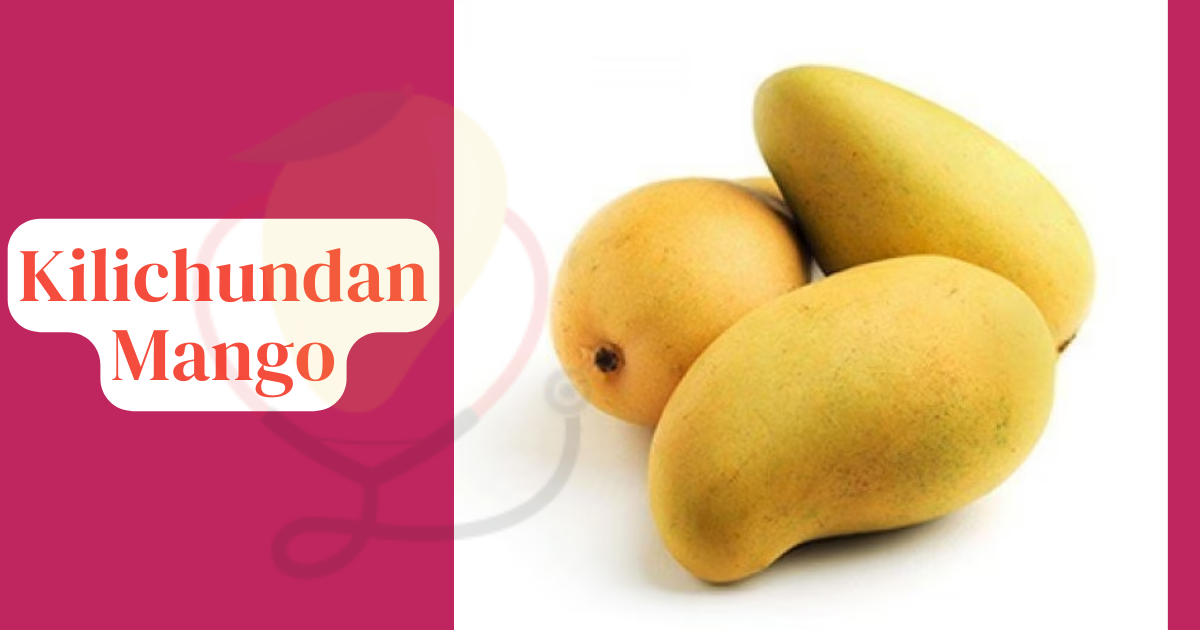Kilichundan mango is a popular variety of mango grown in the Indian state of Kerala. [1]
It is known for its unique taste and aroma, making it a favorite among mango lovers.
The name “Kilichundan” literally translates to “bird’s beak” in Malayalam, a reference to the mangos distinct shape.
In this article, we’ll explore everything you need to know about this delicious variety of mango.
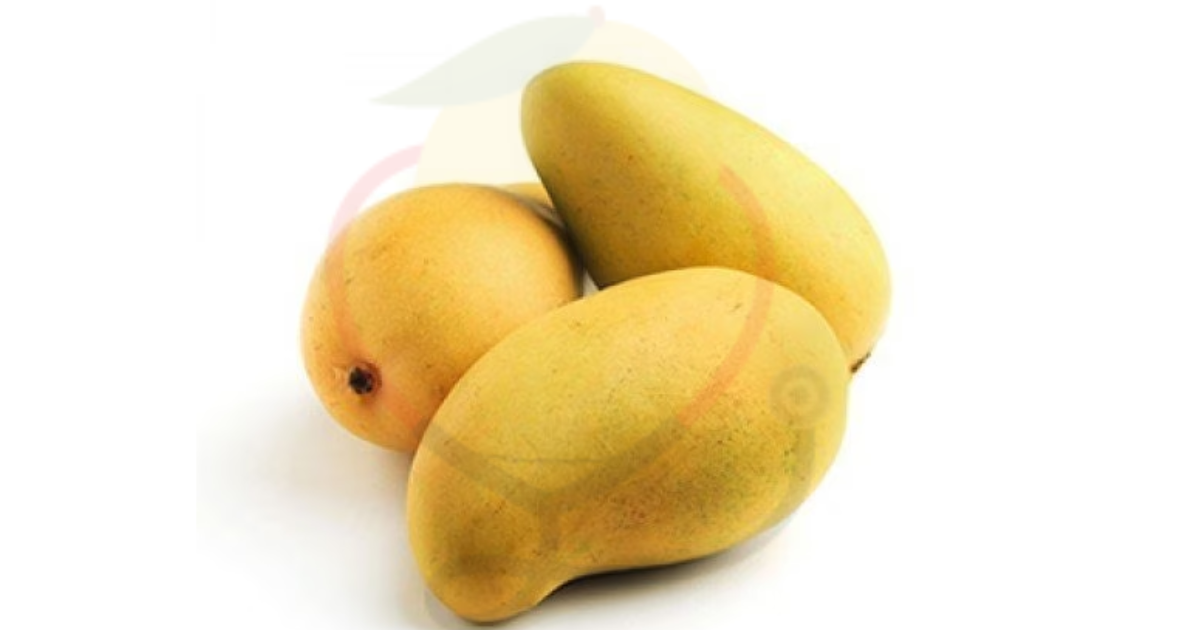
History of Kilichundan Mango
The exact origins of Kilichundan mango are not clear, but it is believed to have been introduced in Kerala by Portuguese traders during the colonial era.
Over time, the mango became a popular variety among local farmers, and it is now widely grown in the state.
Characteristics of Kilichundan Mango
Kilichundan mango is a unique variety of mango that is primarily grown in the southern Indian state of Kerala.
Here are some of the key characteristics of Kilichundan mango.
- They have an oblong shape and a greenish-yellow skin with red or orange patches.
- They also have a rich and intense aroma that adds to their appeal.
- The flesh is soft and juicy, with a smooth and creamy texture.
- Kilichundan mangoes are a good source of vitamins and minerals, including vitamin C, vitamin A, and potassium.
- They are also rich in antioxidants and dietary fiber.
- Kilichundan mangoes are in season from May to August, with peak availability in June and July.
- Kilichundan mangoes are versatile and can be used in a variety of dishes, such as smoothies, desserts, salsa, and chutney.
Health Benefits of Kilichundan Mango
Kilichundan mango is not just a delicious fruit, it also comes with a range of health benefits. Here are some of the key health benefits of Kilichundan mango.
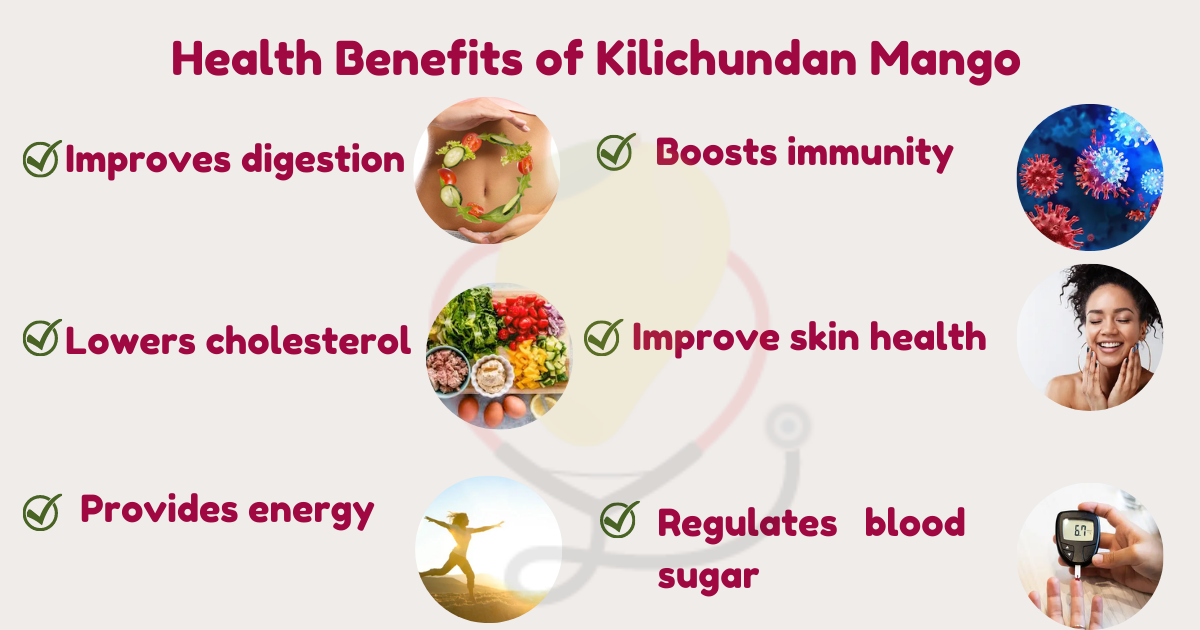
1: Boosts immunity
Kilichundan mango is rich in vitamin C, which helps to boost the immune system and prevent illnesses. [2]
Vitamin C also acts as an antioxidant, protecting the body against damage from free radicals.
2: Aids digestion
Kilichundan mango is a good source of dietary fiber, which helps to promote healthy digestion and prevent constipation. [3]
The fiber in mangoes also helps to regulate blood sugar levels.
3: Supports heart health
Kilichundan mango is low in saturated fat, cholesterol and sodium, but high in potassium. [4]
This makes it a heart-healthy food, as potassium helps to lower blood pressure and reduce the risk of heart disease.
4: Improves vision
Kilichundan mango is rich in vitamin A, [5] which is essential for maintaining healthy vision.
Eating mangoes can help to prevent age-related macular degeneration and cataracts.
5: Fights cancer
Kilichundan mango is packed with antioxidants, which can help to reduce the risk of cancer. [6]
The antioxidants in mangoes also help to protect the body against damage from environmental toxins.
6: Boosts energy
Kilichundan mango is a good source of natural sugars, which provide a quick burst of energy.
Eating mangoes can help to boost energy levels and combat fatigue.
Culinary uses
Kilichundan mango is a versatile fruit that can be used in a variety of culinary applications.
Here are some popular culinary uses for Kilichundan mango.
- Kilichundan mango is a great addition to smoothies, adding a sweet and tangy flavor to the mix.
- The sweet and juicy flesh of the mango pairs well with cream and other sweet flavors.
- Kilichundan mango can be used to make a delicious and refreshing salsa, perfect for serving with chips or as a topping for grilled meats.
- Combine diced mango with onion, jalapeño, cilantro, and lime juice for a tasty salsa with a tropical twist.
- Kilichundan mango is also commonly used to make mango chutney, a sweet and spicy condiment that pairs well with curries, sandwiches, and other savory dishes.
- Kilichundan mango is a popular choice for making mango pickle, a tangy and spicy condiment that is commonly eaten with rice and other Indian dishes.
Kilichundan Mango Recipes
Here are some delicious recipes that use Kilichundan mango.
Mango Lassi
Blend together one ripe Kilichundan mango, one cup of plain yogurt, and a tablespoon of honey for a refreshing and healthy drink.
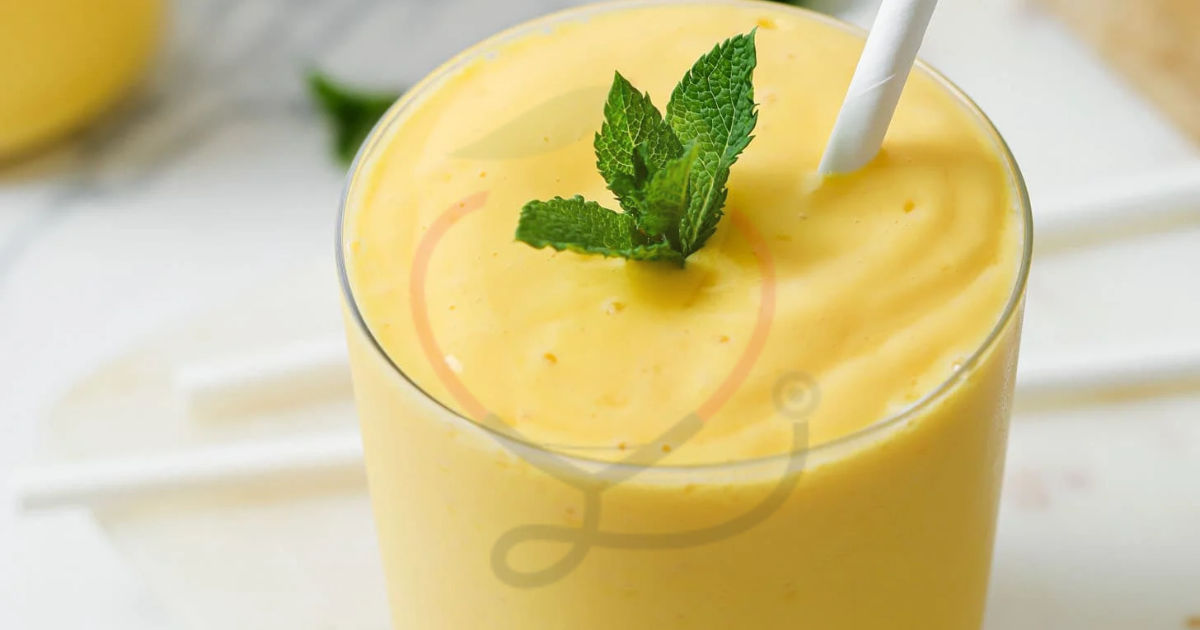
Mango Salsa
Combine diced Kilichundan mango with chopped onion, cilantro, and lime.
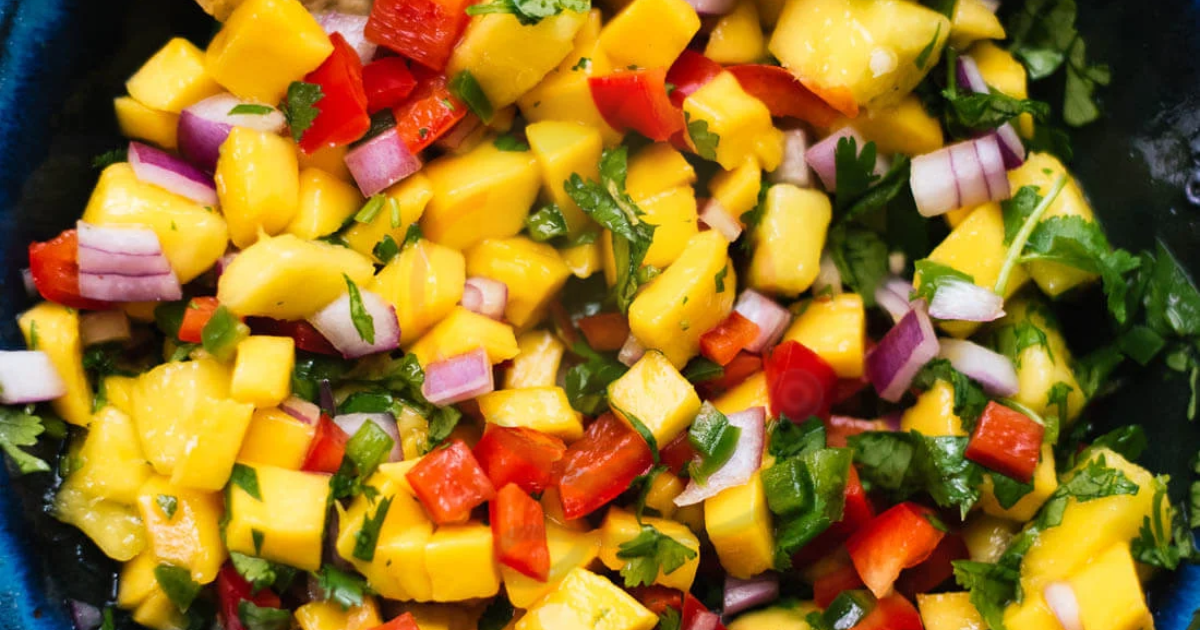
Kilichundan Mango Ice Cream
Puree Kilichundan mangoes and mix with cream and sugar, then freeze for a delicious and creamy dessert.
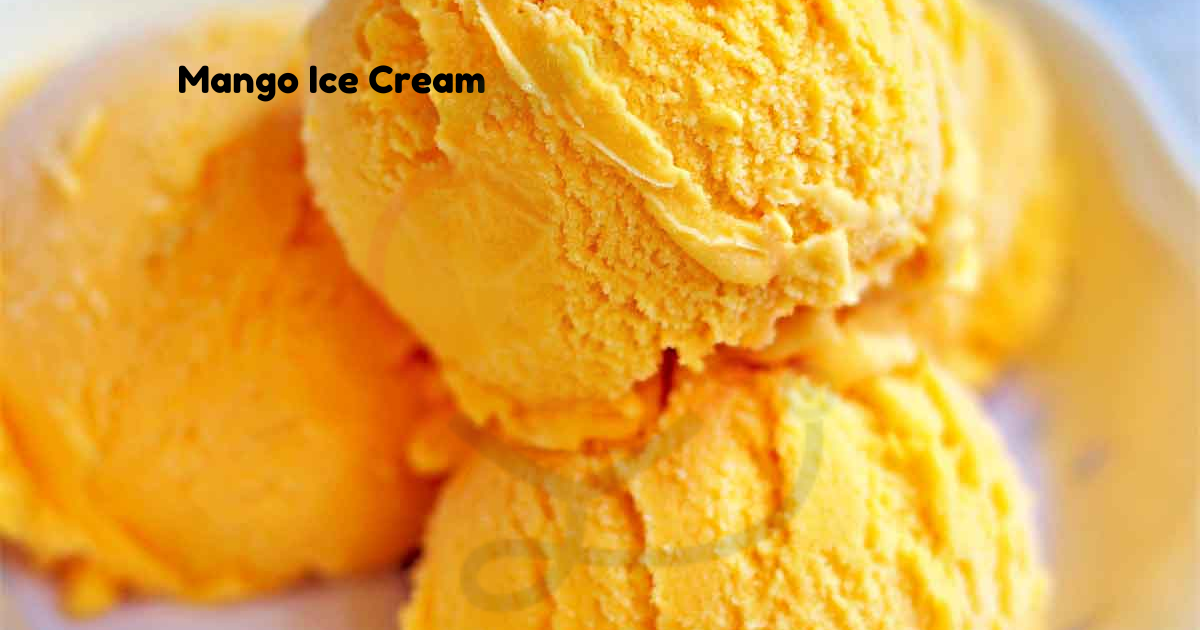
Kilichundan Mango vs Other Varieties of Mangoes
Kilichundan mangoes have a unique taste and aroma that sets them apart from other varieties of mango.
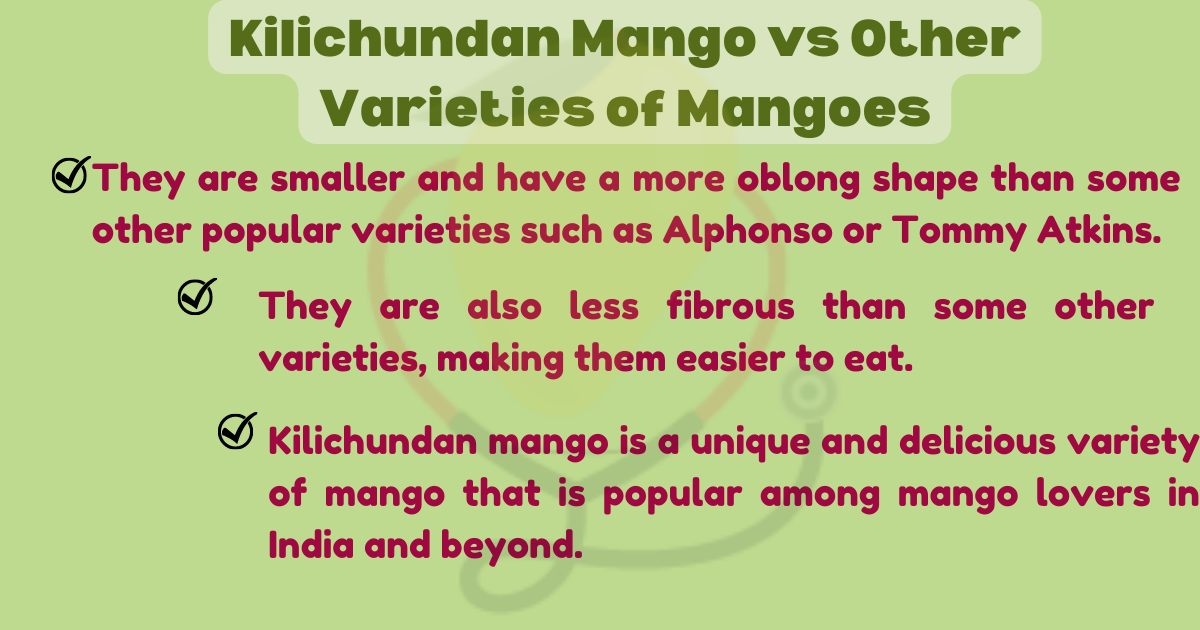
They are smaller and have a more oblong shape than some other popular varieties such as Alphonso or Tommy Atkins.
They are also less fibrous than some other varieties, making them easier to eat.
Kilichundan mango is a unique and delicious variety of mango that is popular among mango lovers in India and beyond.
With its distinct taste and aroma, Kilichundan mango is a fruit worth trying if you have the opportunity.
FAQs
Where can I buy Kilichundan mangoes?
Kilichundan mangoes are primarily available in Kerala, but they can also be found in some other parts of India.
How do I know when a Kilichundan mango is ripe?
A ripe Kilichundan mango will yield slightly to pressure and have a sweet aroma at the stem end.
What is the best way to eat a Kilichundan mango?
Kilichundan mangoes can be eaten fresh or used in a variety of dishes, such as smoothies, desserts, and salsa.
Can Kilichundan mangoes be exported?
While there is a growing demand for Kilichundan mangoes in international markets, the export of the fruit is currently limited due to strict phytosanitary regulations.
What are the health benefits of Kilichundan mango?
Kilichundan mangoes, like all varieties of mango, are rich in vitamins and minerals, and are a good source of antioxidants and vitamin C.

